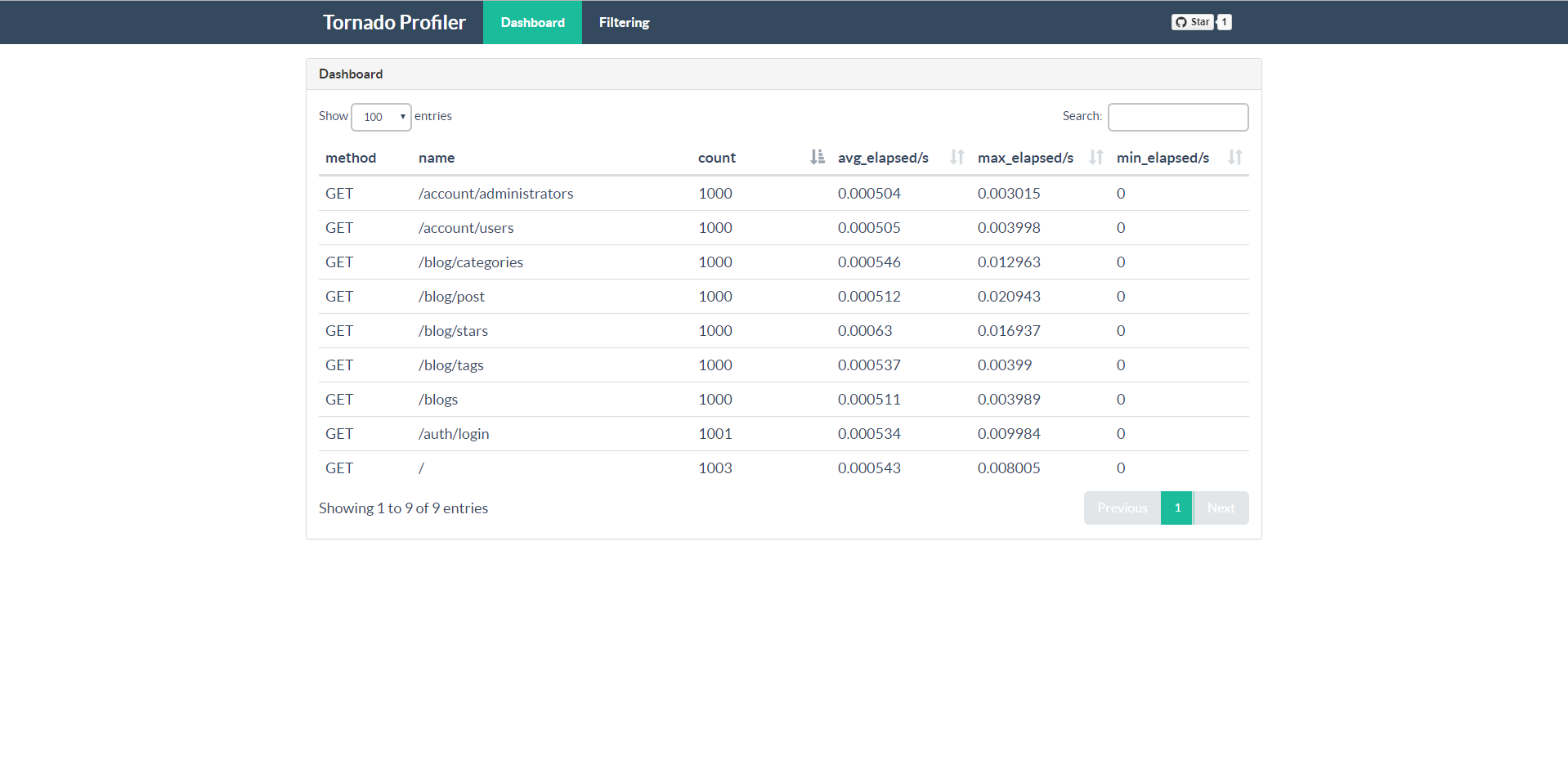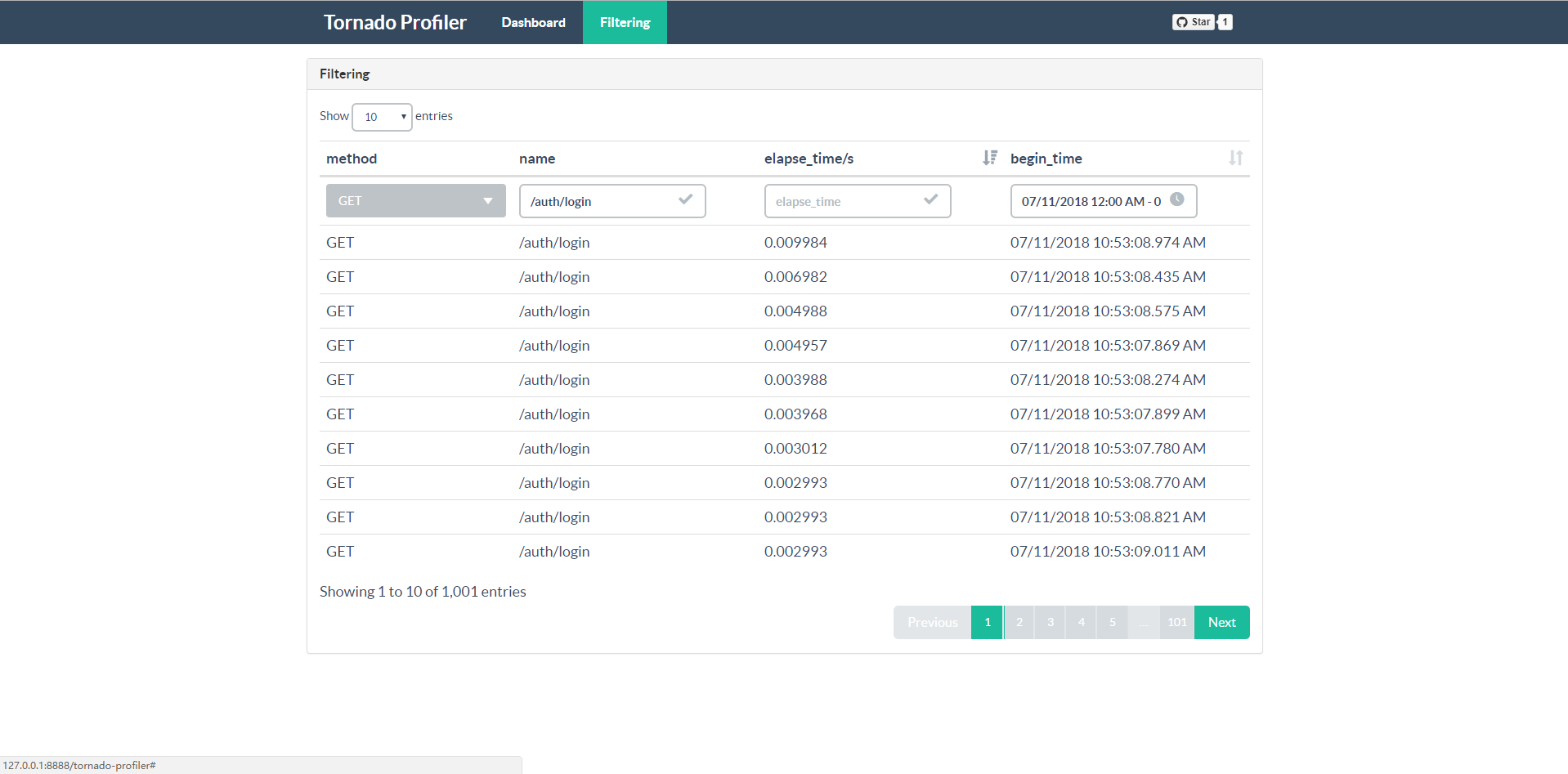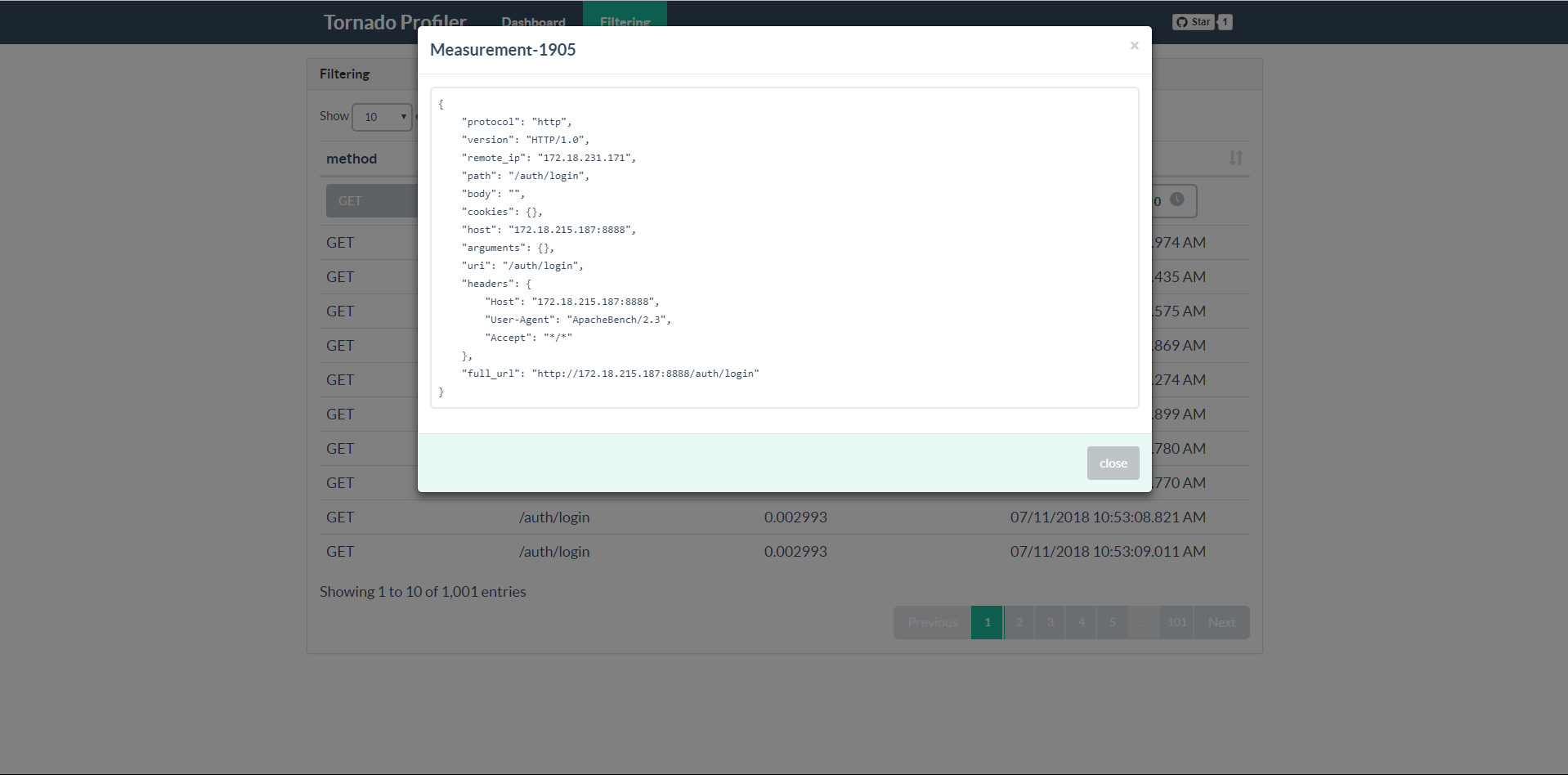A profiler for Tornado Web Server
Project description
Tornado-Profiler
A profiler measures endpoints defined in your tornado application.
Screenshots
Dashboard: Give a summary of all datas
If an endpoint has been accessed before, you can see its summary data as follows.
Filtering: Give filtered datas
You can create filters to get datas that meet the criterias.
Context: Give all details of a request
You can get all details of a request as you wish.
Installation
PyPI version:
$ pip install tornado-profiler
Development version:
$ pip install https://github.com/garenchan/tornado-profiler/zipball/master
Quick Start
Just add a few lines to you codes:
# demo.py
import tornado.ioloop
import tornado.web
from tornado_profiler import Profiler
class MainHandler(tornado.web.RequestHandler):
def get(self):
self.write("main")
class HelloHandler(tornado.web.RequestHandler):
def get(self):
self.write("Hello, world")
def make_app():
app = tornado.web.Application([
(r"/", MainHandler),
])
# use to store measurement datas
backend = {
"engine": "sqlalchemy",
}
# instantiate profiler
profiler = Profiler(backend)
# do something to your app
profiler.init_app(app)
# you can add some rules that won't be profiled here
app.add_handlers(r".*", [
(r"/hello", HelloHandler),
])
return app
if __name__ == "__main__":
app = make_app()
app.listen(8888)
tornado.ioloop.IOLoop.current().start()
Now run your demo.py and make some requests as follows:
$ curl http://127.0.0.1:8888/
$ curl http://127.0.0.1:8888/hello
If everything is ok, tornado-profiler will measure these requests. You can see the result heading to http://127.0.0.1:8888/tornado-profiler or get results as JSON http://127.0.0.1:8888/tornado-profiler/api/measurements
Data Storage Backend
You can use some databases to store your measurement data, such as SQLite, Mysql. The drivers we support are shown as follows:
SQLAlchemy
In order to use SQLAlchemy, just specify backend's engine as "sqlalchemy". This will use SQLite by default and save it to tornado_profiler.db in your working directory.
backend = {
"engine": "sqlalchemy",
}
If your want to change default sqlite database filename or use other databases, you need to set db_url manually:
backend = {
"engine": "sqlalchemy",
"db_url": "sqlite:///dbname.db",
}
backend = {
"engine": "sqlalchemy",
"db_url": "mysql+<driver-name>://user:password@<host>[:<port>]/<dbname>",
}
Setting some attributes of SQLAlchemy is also necessary, you just need to pass them into the backend dict:
backend = {
"engine": "sqlalchemy",
"db_url": "mysql+<driver-name>://user:password@<host>[:<port>]/<dbname>",
# attributes
"pool_recycle": 3600,
"pool_timeout": 30,
"pool_size": 30,
"max_overflow": 20,
}
In some scenarios, we do not want to persist measurement datas, we can use the in-memory database of SQLite and datas will be lost when your web server stops or restarts:
backend = {
"engine": "sqlalchemy",
"db_url": "sqlite://",
}
Other Drivers
coming soon!
Comment
If you have any other requirements, please submit PR or issues. I will reply to you as soon as possible.
Project details
Release history Release notifications | RSS feed
Download files
Download the file for your platform. If you're not sure which to choose, learn more about installing packages.
Source Distribution
Built Distribution
Hashes for tornado_profiler-1.0.0-py3-none-any.whl
| Algorithm | Hash digest | |
|---|---|---|
| SHA256 | 59b977563c583ca553b921d88111fac49e534df8a375d5d437dcf2e0af8959ee |
|
| MD5 | 222a3e63667b01cb7f6e6330bcb5dcea |
|
| BLAKE2b-256 | 668e9a4b34d81d2fa4cdf01d5b6f3fd96af3c6a0f45b54bd9a3ce5112e980469 |













